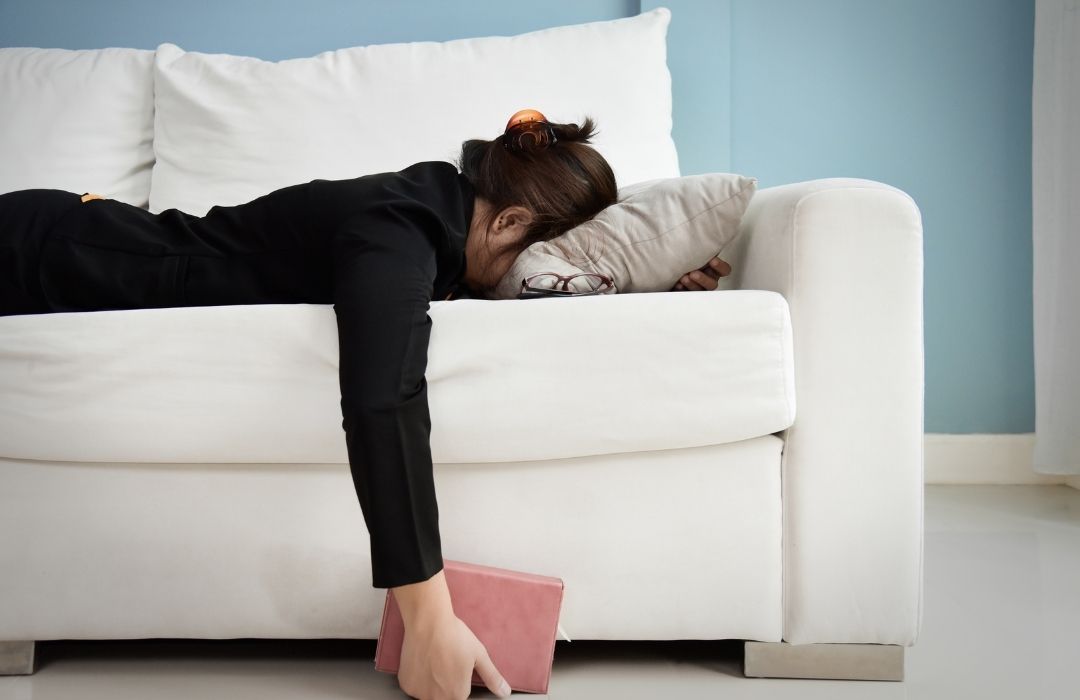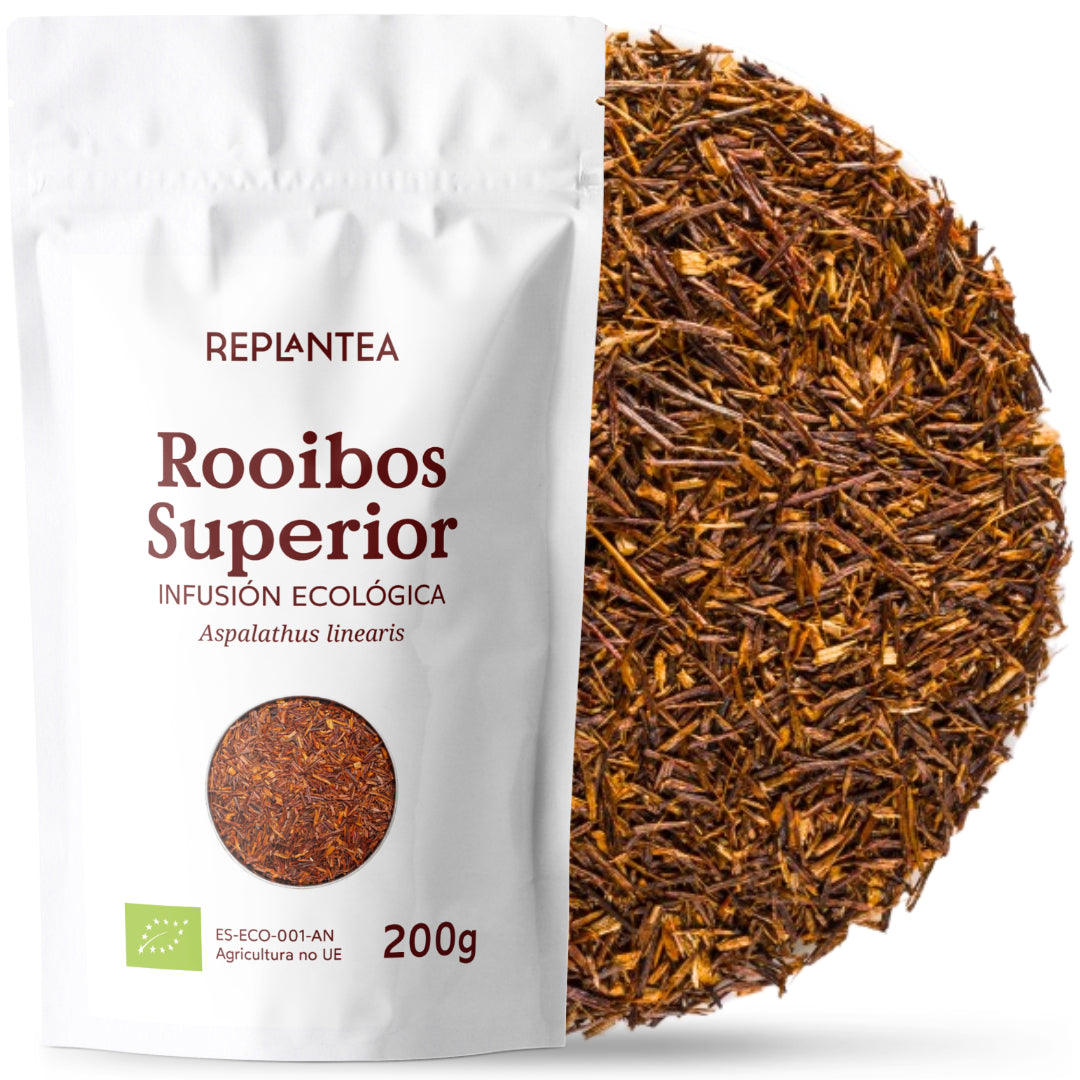
Why Am I So Tired? Causes and Solutions
Almost everyone gets tired or overworked from time to time. These temporary cases of fatigue usually have an identifiable cause and a possible remedy.
But feeling tired all the time, even after sleeping eight hours or more, is very annoying. This type of tiredness makes it difficult to complete any task and can lead to feelings of sadness.
However, the lack of energy or motivation probably isn't your fault. Often, the real cause of this fatigue is a lack of knowledge, and the solution is simply to expand our knowledge.
In this article, you'll learn the most common reasons people feel tired and exhausted, along with helpful solutions and natural energy boosters for each situation.

The most common causes of fatigue
- Excessive stress
- A diet poor in nutrients
- Sleep disturbance
- Mitochondrial disorders
- Possible medical conditions
1. Excessive stress
High levels of stress can disrupt your body's overall balance in an unhealthy way, especially if the stress persists over time.
One of the main hormones behind your body's stress response is cortisol, also known as the "stress hormone." Chronic stress causes an imbalance in cortisol levels, which can lead to fatigue.
And research shows that drinking coffee increases cortisol.
Studies suggest that, unlike coffee, tea helps reduce cortisol, which means it can help reverse the chronic stress cycle. And the L-theanine in tea also helps moderate the stimulating effects of caffeine.
To increase your resistance to stress, it's also necessary to incorporate rest time and restorative activities into your life that allow you to unwind and relax.
You can speed recovery from stress-induced fatigue with revitalizing practices such as napping, spending time outdoors, yoga, or meditation.
RELATED INFORMATION
All About L-Theanine: How It Works and Its Benefits
2. A nutrient-poor diet
There are many reasons to follow a healthy diet, especially if your energy levels are low.
First, our bodies need sufficient micronutrients to survive and thrive.
Eating plenty of fresh, whole foods is the best way to ensure you don't have deficiencies.
Another reason a poor diet saps your energy levels is related to the consumption of sugar and processed carbohydrates.
It is common to experience low blood sugar, where your blood sugar level drops suddenly after a meal, causing a feeling of drowsiness.
Additionally, people who regularly consume too much sugar or processed foods are at greater risk of insulin resistance, a condition in which the body becomes intolerant to the effects of insulin, the hormone that stores sugar.
Insulin resistance leads to lethargy, weight gain, and an increased risk of chronic health problems.
Reduce your risk of insulin resistance problems by eating healthy, natural foods and exercising regularly.
3. Disruption of sleep and circadian rhythms
It's no secret that better sleep helps prevent fatigue. Try these simple tips to ensure you get a good night's rest:
- Avoid bright light, screens, and social media for a few hours before bed: Artificial light reduces your body's production and release of melatonin. You can create a dimly lit, device-free environment to encourage melatonin production naturally.
- Don't eat right before bed: Evidence suggests that eating 30 to 60 minutes before bedtime negatively affects sleep quality. It's recommended to stop eating a few hours before bedtime to be safe.
- Prepare a relaxing infusion: The ritual of preparing an infusion and enjoying its aromas can help you go to bed more easily. Additionally, various natural herbs such as chamomile, lavender, and lemon balm can improve sleep quality.
Circadian rhythms are 24-hour cycles that tell the body when to be awake and when to go to sleep, and they affect most of the body's cells.
If you don't feel awake during the day, you can help maintain your circadian rhythm by getting more sun exposure (especially early in the morning), exercising during the day, and getting consistent sleep.
RELATED INFORMATION
4. Mitochondrial disorders
Mitochondria are responsible for generating the energy our body's cells need. Despite their tiny size and the fact that we rarely mention them, mitochondria play an indispensable role in overall health, especially when it comes to fatigue or tiredness.
The tips we've mentioned—managing stress, maintaining a healthy diet, and getting a quality sleep routine—help keep mitochondria in shape.
Another way to maintain mitochondrial health is through intermittent fasting. Fasting can help your body recycle unhealthy or aging mitochondria, which increases the overall health of your mitochondria and promotes better energy production.
You can also help your mitochondria by breathing cleaner air. Polluted air can damage mitochondria and cause fatigue, among other health problems. So consider opening your windows and getting fresh air whenever possible, and try to get out of urban areas and into nature whenever possible.
RELATED INFORMATION
5. Possible medical conditions
If you feel overly tired, or if you can't seem to find any energy, there may be medical reasons behind your chronic fatigue.
These are some of the most common health problems associated with lack of energy:
- Sleep apnea: In addition to disrupting sleep cycles, apnea deprives cells of oxygen, increasing fatigue.
- Depression and other mental health problems: It's a fact that depression can cause fatigue.
- Iron deficiency anemia: Many women suffer from this iron deficiency. If you have anemia, you can reverse it by taking iron supplements.
- Hypothyroidism: When your body doesn't produce enough thyroid hormone, you may feel fatigued all the time.
If you suspect a medical condition is causing your fatigue, you should see your doctor. Often, a simple blood test can diagnose the cause of your fatigue.
How to have more energy?
Your energy levels affect your daily life and your quality of life. And they're a very important indicator of your overall health.
If you feel fatigued, don't think it's your fault. Instead, consider what routines or habits may be off-limits and take steps that can boost your energy naturally.
Each of the previous sections includes some advice you can easily apply to your life. Choose a few and put them into practice for a couple of weeks. After that, see how you feel.






















